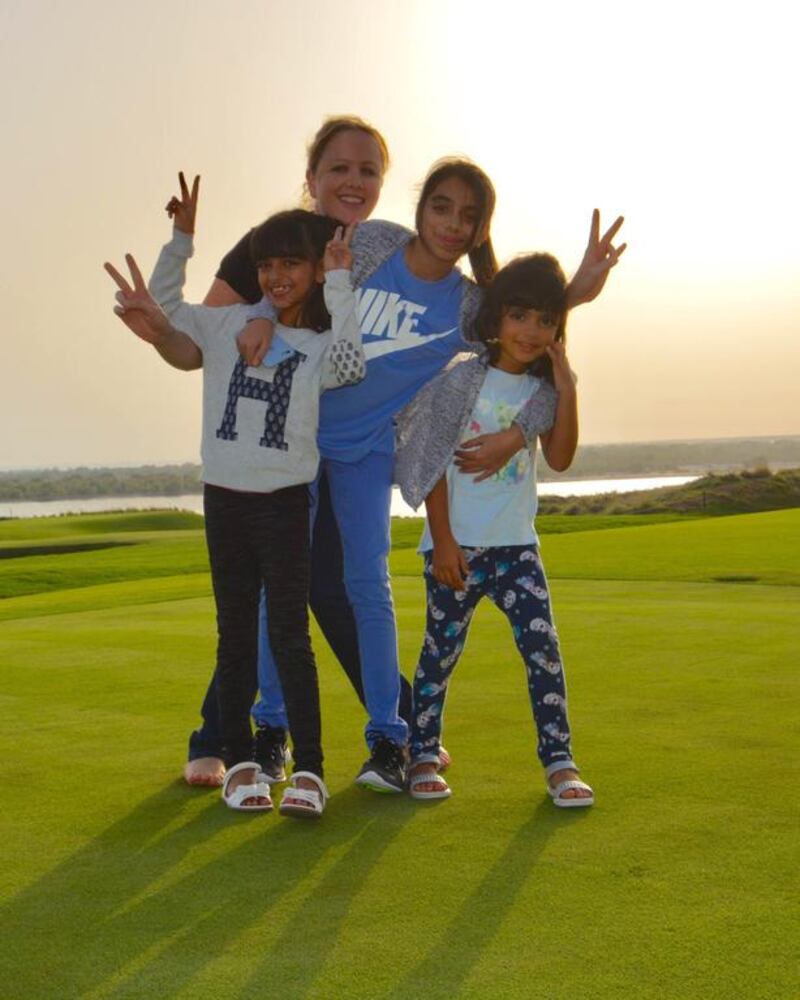The growing number of British nannies who are coming to work in the UAE are the subject of a new documentary that has premiered in London.
Directed by Paul James Driscoll, Nanny Cultures follows Julie C Mcilvenny, who leaves London to work as a nanny for a family in Abu Dhabi with six children.
The documentary had its first screening at the Hospital Club, a private members club for the city’s creative community. The audience included representatives from the UAE embassy in the city, the makers of the film, and Anna Langley-Evans, Emma Henderson and Jana Valabikova, who work for Nannies Incorporated, an agency specialising in hiring maternity nurses and nannies for clients in the Emirates.
The film reveals that nannies can earn between £800 (Dh3,582) and £1,000 per week, while maternity nurses can command up to £1,500 per week.
It is a lucrative, growing business, says Valabikova, with more Emirati families looking to employ British nannies or governesses.
“Julie is my client and she approached the agency through me to be a part of this film,” reveals Valabikova. “We are really happy with the result, because questions that nannies ask us all the time are, ‘What is life like in the UAE?’ and ‘What are the cultural expectations?’ and we can now show them this film.”
Driscoll has made a film that is much more than a corporate video. It offers an insightful and rare look inside the home of an Emirati family, at the different types of help employed to work in a home. And the director – a former multimedia journalist at The National who also made the short film, Housemaids in Dubai and Abu Dhabi – does not shy away from showing the challenges that come with the job.
The film follows Mcilvenny, a mother of two, who wants to live in Abu Dhabi because that is where her husband is based.
We watch her packing her bags, leaving England, and being picked up at Abu Dhabi airport by a Pakistani driver, before meeting the family she will be working for.
Driscoll’s film also shows a disapproving neighbour and the jealousies that can exist between the different helpers in the household. He does so while skilfully remaining objective.
“I was approached by [UAE production company] Anasy Media, who had a few different ideas and films and this was one of the three they proposed,” says Driscoll. “The initial idea changed, it evolved from something that was bit more satirical, with more comedy, into a documentary. The reason I wanted to do that was because at the heart of this story were real human stories.
“I feel like this has never been done before. No one to my knowledge, or Anasy Media’s knowledge, has gone into an Emirati home and been allowed to film the home life.
“There are lots of misconceptions about life in the Middle East. The family was awesome.
“I really wanted the humanity of the domestic workers, of Julie and the Emirati family, to come out and try to make something that was objective and true.”
This is a film that is sure to pique the interest of cultural commentators, potential nannies and those families thinking of hiring their very own “Mary Poppins”.
Anasy Media is in talks to screen the documentary at film festivals, before a possible general release.
artslife@thenational.ae






